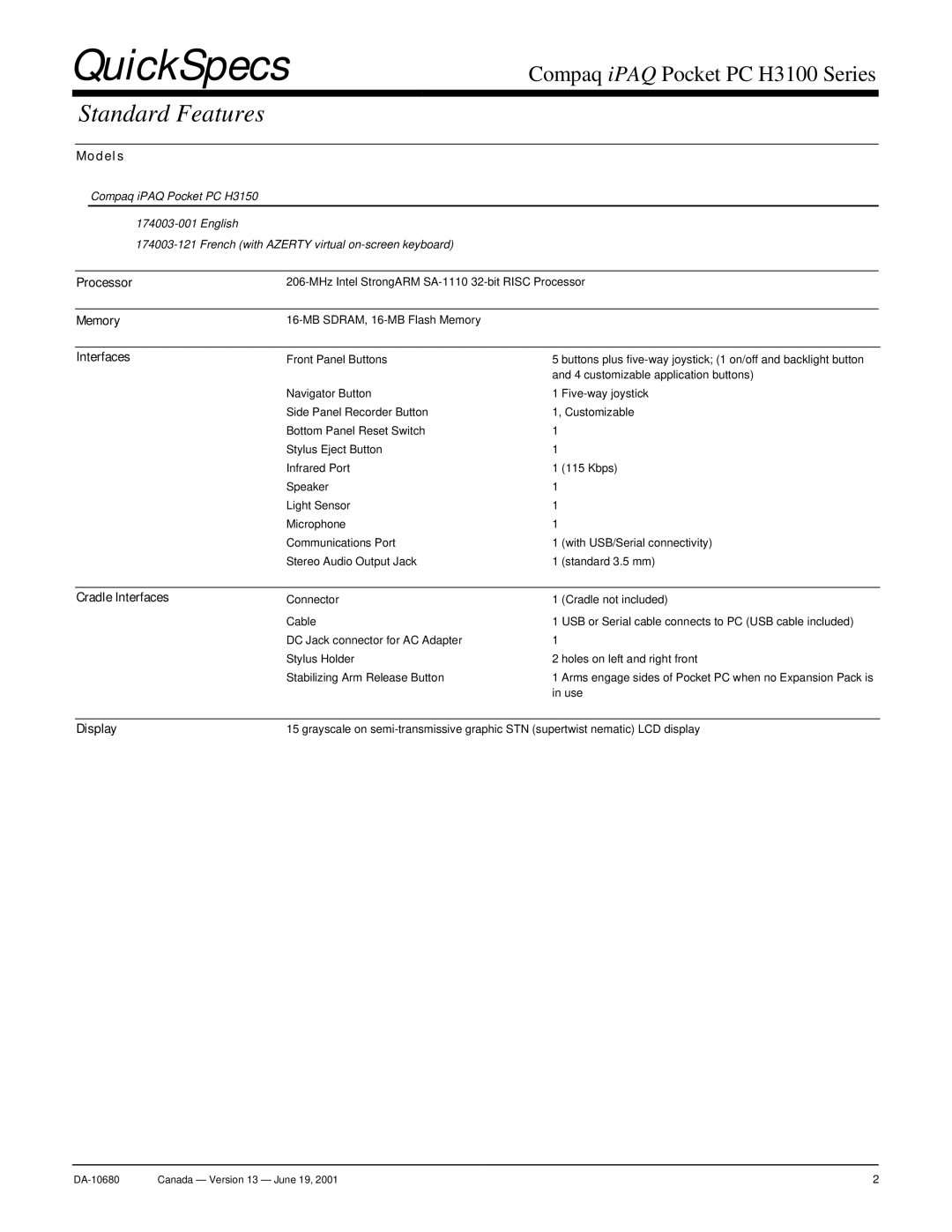H3100 specifications
The Compaq H3100 series is a family of handheld devices that made a significant mark in the world of mobile computing during its time. Launched in the early 2000s, it was designed for professionals and tech enthusiasts seeking portable computing solutions. With its compact design and various features, the H3100 series provided users with essential tools for productivity on the go.One of the standout characteristics of the Compaq H3100 is its sleek, lightweight design, allowing users to easily carry it in their pockets or bags. The device came equipped with a vibrant color display, which was quite revolutionary for handhelds at the time. This display offered clarity and brightness, ensuring that users could access their information in various lighting conditions.
In terms of technology, the H3100 series was powered by the Windows CE operating system, which facilitated a smooth user experience with its intuitive interface. This OS allowed compatibility with numerous applications, making it versatile for different tasks, from document editing to personal information management. The inclusion of a stylus further enhanced usability, enabling precise navigation of the touch interface.
Connectivity was another critical feature of the H3100 series. It supported infrared communication, allowing users to transfer data wirelessly with other compatible devices. This capability was particularly useful for syncing contacts and calendar events with desktop computers, thus preventing data loss and ensuring that users remained organized.
The H3100 series also boasted substantial memory options, supporting various storage expansions through CompactFlash slots. This made it possible for users to increase storage capacity for applications, multimedia, or files, addressing the limitations typically faced by portable devices of that era.
Additionally, the H3100 was known for its long-lasting battery life, which provided extended usability without frequent recharging. This feature was highly regarded by professionals who relied on their devices for daily tasks during travel.
In conclusion, the Compaq H3100 series represented a significant evolution in portable computing, combining design aesthetics with technological advancements. Its features such as Windows CE, a bright color display, infrared connectivity, expandable memory, and robust battery life made it a popular choice among users during its time. Although it may now be considered a relic in the fast-paced tech world, the H3100 series laid the groundwork for future handheld devices, influencing the trajectory of mobile computing.

